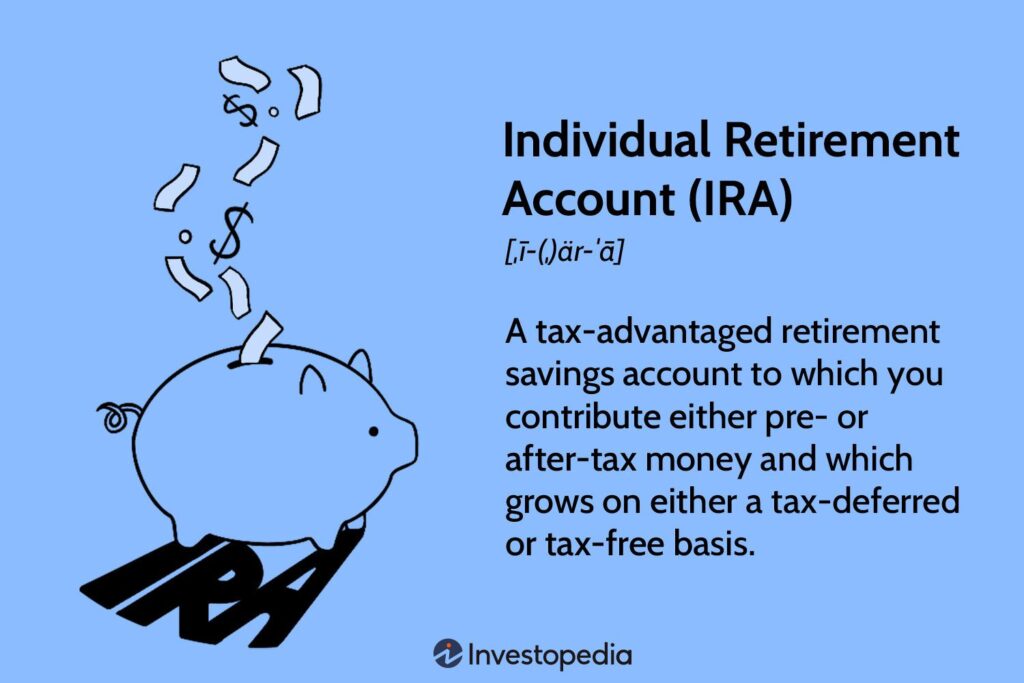Investing in Your Future: Strategies for Retirement Planning

Retirement planning is more than just setting aside money for the future; it’s about creating a roadmap to financial security and independence. With increasing life expectancy and the uncertainty of social security benefits, individuals are increasingly responsible for funding their retirement. However, with careful planning and disciplined execution, you can take control of your financial future and enjoy your golden years without financial stress.
Understanding Retirement Planning

Retirement planning encompasses a series of financial decisions and actions taken to secure a steady income stream during retirement. From estimating retirement expenses to choosing investment vehicles, each step plays a crucial role in determining your financial well-being post-retirement.
Setting Retirement Goals

Setting clear and achievable retirement goals is the foundation of effective retirement planning. Whether you aim to travel the world, pursue hobbies, or maintain your current lifestyle, defining your retirement goals will help guide your financial decisions.
Estimated Retirement Expenses

Estimating your future expenses is essential for determining how much you need to save for retirement. Consider factors such as housing, healthcare, leisure activities, and inflation when calculating your retirement expenses.
Creating a Retirement Budget

Creating a detailed retirement budget allows you to align your income and expenses effectively. By tracking your spending habits and adjusting your budget accordingly, you can ensure that your retirement savings last throughout your golden years.
Investing wisely is paramount to achieving your retirement goals. By diversifying your investment portfolio and adopting a long-term perspective, you can mitigate risks and maximize returns.
Start Early

One of the most effective strategies for retirement planning is to start early. The power of compounding allows your investments to grow exponentially over time, giving you a significant advantage in building wealth for retirement.
Maximize Retirement Accounts

Take full advantage of employer-sponsored retirement accounts such as 401(k)s or IRAs. Contribute the maximum allowable amount and consider employer matching contributions as free money towards your retirement savings.
Diversify Your Investments

Diversification is key to reducing investment risk. Spread your investments across various asset classes such as stocks, bonds, and real estate to minimize the impact of market fluctuations on your portfolio.
Consider Long-Term Care Insurance

Long-term care expenses can significantly impact your retirement savings. Consider purchasing long-term care insurance to protect your assets and ensure access to quality care when needed.
Seeking Professional Guidance

Consulting with a financial advisor can provide valuable insights and personalized recommendations based on your financial situation and retirement goals. A professional advisor can help you navigate complex financial decisions and optimize your retirement savings strategy.
FAQs
The amount you should save for retirement depends on various factors such as your desired lifestyle, retirement age, and expected expenses. A general rule of thumb is to aim for at least 70-80% of your pre-retirement income.
It’s never too early to start planning for retirement. Ideally, you should begin saving and investing for retirement as soon as you start earning income. However, it’s never too late to start, and even small contributions can make a significant difference over time.
Failing to plan for retirement can lead to financial insecurity and dependence on others for support. Without adequate savings and investments, you may struggle to maintain your desired lifestyle and face challenges in covering essential expenses during retirement.
While social security benefits can provide a foundation for retirement income, they may not be sufficient to maintain your desired standard of living. It’s essential to supplement Social Security with personal savings and investments to ensure a comfortable retirement.
Life is unpredictable, and your retirement plans may need adjustments along the way. Regularly review your financial situation, reassess your goals, and make necessary changes to your retirement plan to accommodate any changes in circumstances.
The tax implications of retirement withdrawals depend on the type of retirement account and your tax bracket at the time of withdrawal. Traditional retirement accounts such as 401(k)s and IRAs are taxed at ordinary income rates, while Roth accounts offer tax-free withdrawals in retirement.
Conclusion
Investing in Your Future: Strategies for Retirement Planning is a lifelong journey that requires careful planning, discipline, and foresight. By setting clear goals, creating a realistic budget, and adopting proven investment strategies, you can pave the way for a secure and fulfilling retirement. Start early, stay informed, and seek professional guidance when needed to ensure that your retirement years are truly golden.


